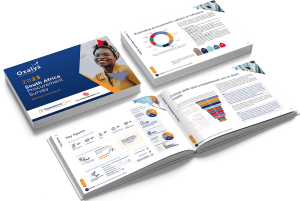 By Kate Vitasek, Professor in Supply Chain Management, University of Tennessee
By Kate Vitasek, Professor in Supply Chain Management, University of Tennessee
A report by the American Productivity and Quality Center (APQC) outlines the critical skills gaps that face today’s procurement professionals.
The good news is that companies have pushed procurement out of the back office and onto centre stage, accelerating the demand for skilled procurement talent. But the bad news is that today’s procurement professionals lack the essential skills that they need to succeed. In addition, finding individuals with the right talent is getting harder and harder.
The APQC report entitled, Identifying and Developing the Future Skills Needed in Sourcing and Procurement, features a survey of 204 professionals and includes input from an expert focus group as well as one-on-one interviews with procurement professionals.
Marisa Brown, Senior Principal Research Lead, Supply Chain Management, APQC – the primary author of the report – sums it up by saying that “procurement talent development is not adequate in developing the most important skills for the future”.
Why is a reset needed when it comes to considering the procurement skills needed for the future? The report suggests that new business realities, including globalisation, technological change, market volatility and accelerating consumer demands, are increasingly pushing procurement into the spotlight.
Furthermore, the lens through which organisations look at traditional ‘goods’ has changed. For example, sourcing for services has exploded. The report states that “a case in point is outsourcing logistics, wherein 86 percent of companies outsource warehousing and distribution to third-party logistics providers. In addition, more sophisticated sourcing business models–such as performance-based contracting and Vested outsourcing models–have emerged as organizations seek to drive innovation and mitigate risk with supply chain partners”.
The survey: skills for the future of procurement
One of the main goals of the APQC research was to identify the key skills needed for the future of procurement. Skills fell into four categories: job-specific skills, general business skills, social skills and deep work skills.
In terms of job-specific skills, or those technical skills specific to the procurement function, the survey indicated that the most important involve assessing and managing suppliers. This means using spend analytics and risk analysis skills to identify which suppliers are the best bets for building strategic partnerships.
The survey revealed that general business skills, or those skills relevant to and beyond procurement, were rated as more important than job-specific skills. “We are no longer just looking to compare suppliers with basic RFPs”, notes David Handley, Vice President: Business Partnerships, Business Initiatives and Support Services, Vancouver Coastal Health. “We need more general business skills that focus more on managing strategic supplier partnerships which collaboratively look for ways to drive out total cost of ownership. This means having much more broad-based business skills, ranging from financial acumen for developing business cases to working collaboratively with suppliers to reduce our risks.”
The APQC article refers to a recent Harvard Business Review article entitled, A New Approach to Contracts, which suggests that organisations need to shift from adversarial and arm’s-length approaches to working with suppliers. Organisations seeking to work more collaboratively with their suppliers to drive continuous improvement and innovation need to realise that social skills are important.
Social skills are considered the ‘soft’ skills involved in collaboration and change management. Out of the skills categories that APQC examined, this category included the most skills ranked as critical or very important. The Harvard Business Review article authors David Frydlinger (Managing Partner, Cirio Law Firm) and Oliver Hart (Professor of Economics, Harvard University, and 2016 recipient of the Nobel Prize in Economic Sciences for his work on contract theory), point to economic research that proves that the soft skills of relational contracting can yield significant results for organisations. They argue that not getting the soft relational aspects right will foster ill will and unproductive ‘shading’ behaviour that can drive up costs and inefficiencies.
Deep work skills – a term coined by Cal Newport, Associate Professor of Computer Science, Georgetown University, and the author of six self-improvement books, to describe the ability to focus intensely without distraction – are becoming increasingly valuable at the same time as they are becoming increasingly rare. Of the deep work skills that APQC asked about, nearly all were ranked critical or very important by more than one third of respondents. As automation removes busy work, there will be more time and a need for procurement professionals to engage in work that is cognitively demanding.
Business ethics, also called ‘professional ethics’, involve the application of ethical principles in the business environment. It is not surprising that this skill is at the top of the overall skills list, because unethical procurement practices (including bribery, illegal sourcing and bid rigging) can land organisations in huge trouble with customers, shareholders, the press and regulatory authorities.
However, the report found that a big concern is not simply avoiding the negative aspects of ethical issues, but rather not recognising the need for the positive role that procurement can play in driving forward ethical sourcing practices.
The report further reveals large gaps in the development of the most important procurement skills, highlighting the fact that almost 60% of survey respondents say that business ethics is critical/very important, but only one third are effective at helping employees develop this skill.
The report notes that “smart procurement organizations are applying strong business ethics as a way to enable their organizations to achieve corporate sustainability and social welfare goals”, and points to an example from Theo Chocolate for their work in sustainable sourcing.
Other top skills that procurement professionals should embrace, as identified in the APQC report, include:
– Critical thinking
– Communication
– Stakeholder management
– Relationship building and management
– Leadership
The way forward
Brown asserts that the consequences of not addressing the skills gaps are huge: “if organizations cannot develop these skills in-house, they will be forced to secure them through external hires and/or consultants. But the only other option is to simply not develop these skills–and that’s even more dangerous. Organizations may be able to rely on a handful of experienced procurement professionals for now. But when those people retire (and they will), the function will be in the hands of people who may lack the ability to lead, think critically, or act ethically, and who have never built relationships with key suppliers and internal stakeholders”.
The big picture? “Develop talent–now”, asserts Brown. “Many procurement teams are already struggling to recruit well-qualified external talent, especially for senior-level positions. The market for top procurement talent is highly competitive, so organizations need to offer competitive packages to attract qualified candidates.”
The APQC says organisations should invest in procurement talent management programmes. Unfortunately, it found that more than half of organisations (56%) do not currently use their talent development programme as a selling point to appeal to procurement professionals during recruitment. This is a huge missed opportunity.
The APQC report warns that without the next generation of skilled professionals waiting in the wings, procurement’s time in the limelight “may be met with rotten tomatoes rather than roses”.
Expectations for procurement’s performance are high and growing higher. “Procurement leaders must act quickly to develop the next generation of procurement talent. They should use all tools at their disposal, including certification programs and online training, but must also understand that a lot of this work must be done in-house.”


























